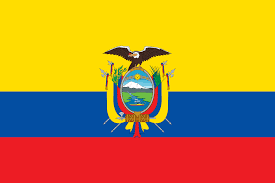Ecuador protesters block roads over fuel subsidy cuts

- Country:
- Ecuador
Transport unions went on strike and protesters blocked roads across Ecuador on Thursday protesting the end of four-decade-old fuel subsidies among a package of government fiscal measures worth more than $2 billion a year.
President Lenin Moreno, who has set the Andean oil producer on a centrist path after years of leftist rule, announced earlier this week a series of measures, also including tax reforms, intended to slash the fiscal deficit. Taxi, bus and truck drivers blocked streets in the highland capital Quito and the second city Guayaquil on the Pacific coast, while bus stations were closed as the fuel measure came into effect.
"It's an indefinite action until the government overturns the decree on subsidies. We're paralyzing the nation," one bus transport leader Abel Gomez told Reuters. Officials say the elimination of fuel subsidies was necessary to lift the economy and stop smuggling.
"We will not hesitate to defend Ecuadoreans' rights," presidency secretary Juan Sebastian Roldan told local radio, saying disorder would not be tolerated. Indigenous groups, students and various unions joined Thursday's protest, blocking roads with rocks and burning tires.
"Down with the package!" some shouted. "The lack of transport affects us all, but equally the rise in gasoline prices will affect us," said Cesar Lopez, 39, walking to his business in Quito. "I don't know what will happen."
Some groups of protesters trying to reach the government palace in downtown Quito scuffled with police. Economy Minister Richard Martinez said on Wednesday that Ecuador hoped to save about $1.5 billion a year from eliminating fuel subsidies. With tax reforms also, the government would benefit by about $2.27 billion, he said.
On Tuesday, Ecuador announced it was leaving the Organization of the Petroleum Exporting Countries (OPEC) to pump more oil and raise revenues. The government wants to reduce the fiscal deficit from an estimated $3.6 billion this year to under $1 billion in 2020.
Ecuador's debt grew under former leftist leader Rafael Correa, who endorsed Moreno in the 2017 election but has since become a critic of his successor's turn toward more market-friendly economic policies. Moreno's government reached a $4.2 billion deal with the International Monetary Fund (IMF) in February. But skepticism of the IMF runs strong in Ecuador and throughout Latin America, where many blame austerity policies for economic hardship.
With a population of more than 17 million people, Ecuador has a long history of political instability. Street protests toppled three presidents during economic turmoil in the decade before Correa took power in 2007.
Also Read: UPDATE 2-Weakened Netanyahu seeks Israeli unity government with rival Gantz
(This story has not been edited by Devdiscourse staff and is auto-generated from a syndicated feed.)
ALSO READ
A Moroccan activist was sentenced to 5 years for criticizing the country's ties to Israel
Rajnath Singh criticizes Beijing's renaming of parts of Arunachal Pradesh in China
Rajnath Singh criticizes Beijing's decision to rename parts of Arunachal Pradesh in China
Woman dies, husband critical after couple consumes poison in UP's Bijnor
HC Criticizes Kejriwal for Disparaging Approver Testimonies, Questions his Remarks on Judicial Process










